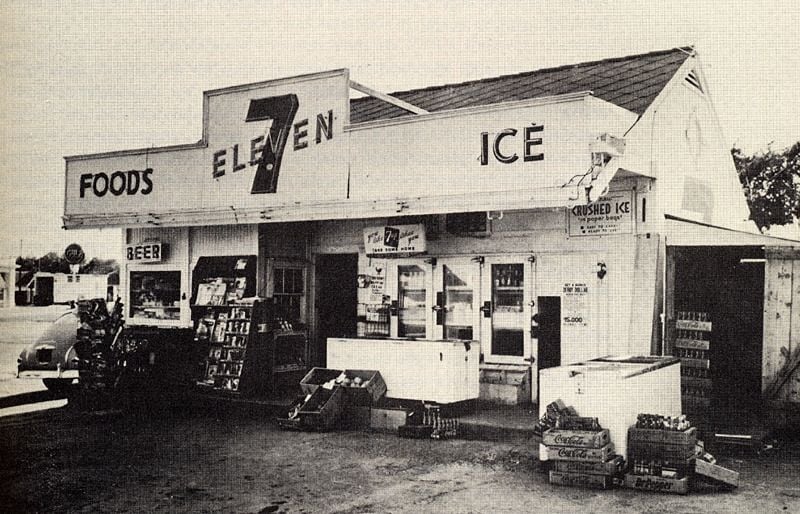When you think of innovation, you might picture tech companies or startups, but innovation is just as important in more traditional industries, like convenience stores. One company that’s leading the way in this space is 7-Eleven. 7-Eleven innovation has allowed the brand to adapt, grow, and stay relevant, all while providing customers with an enhanced experience.
When 7-Eleven expressed interest in carrying my wrist water bottle in their Hawaii stores, I knew they were a forward-thinking brand. They understood that every location has unique needs, and what works in Hawaii might not work in Maine. This flexibility and ability to think outside the box is the essence of 7-Eleven innovation.
7-Eleven Innovation: Always Testing New Ideas
At the core of 7-Eleven innovation is a commitment to continuously test new products and services. The company introduces over 1,000 new products every year, keeping their offerings fresh and relevant. One of the standout examples of this approach is their Evolution Stores. These stores serve as testing grounds for new concepts and experiences, allowing customers to try out innovative features such as:
- Self-serve coffee bars where customers can customize their beverages.
- Walk-in beer coolers that offer convenience and a wide selection.
- Laredo Taco Company, a fast-food option in North Dallas serving fresh, handmade tortillas.
These Evolution Stores allow 7-Eleven to gauge customer interest in new ideas before rolling them out on a larger scale. According to TechRepublic, this digital and experiential transformation is a key part of how 7-Eleven has positioned itself as a “convenience store of the future.”
For insights on how curiosity drives innovation, check out Julie Austin’s article about the power of curiosity.
Partnering with Local Artists: A Creative 7-Eleven Innovation
One way 7-Eleven goes beyond traditional convenience store expectations is through collaborations with local artists. In North Dallas, 7-Eleven worked with local artist Mariell Guzman, who created vibrant murals to reflect the neighborhood’s spirit. This partnership transforms the store from a simple place to shop into a destination that celebrates local culture.
This approach aligns with what I always preach: Innovation is about creating an experience. When businesses engage with the community and local creators, they foster stronger connections with customers. According to Food Institute, partnering with artists is just one of many innovative lessons from 7-Eleven.
Investing in Digital Innovation
7-Eleven has also made significant strides in digital innovation, investing millions in new technologies to improve store operations and customer experiences. Their digital innovations include:
- Sales data analysis: Advanced software tracks customer purchases, allowing franchisees to stock up on best-selling items and reduce waste.
- Automated inventory and payments: The system manages inventory and invoices, freeing up time for store owners to focus on other aspects of their business.
- AI-driven recommendations: AI helps the store anticipate customer needs, providing a smoother, more personalized shopping experience.
These tools streamline the franchisee experience, making it easier to manage stores while enhancing customer service. Harvard Business Review highlights that leadership in innovation, like 7-Eleven’s digital investments, is key to staying competitive in today’s fast-paced market.
Franchise Innovation: How Local Stores Drive National Success
While 7-Eleven leads innovation from the top, much of its success comes from local franchisees. Franchisees understand their communities and are often the ones driving local-level innovation. Whether it’s customizing products to fit the market or trying out new ideas, local stores play a huge role in making 7-Eleven the global giant it is today.
This reminds me of how some of the most famous fast-food items were invented by franchisees, such as:
- McDonald’s Big Mac: Created by a franchisee, it became a signature menu item.
- Domino’s American Legends Pizza: Developed by a Los Angeles franchisee, this popular product shows how local innovation can influence national brands.
At 7-Eleven, local stores are encouraged to innovate based on customer preferences. This flexibility allows the brand to cater to diverse markets, from urban areas to small towns. Deloitte discusses the importance of fostering human creativity to drive business innovation, a principle 7-Eleven has clearly embraced.
Why Is 7-Eleven Called 7-Eleven?
Have you ever wondered why 7-Eleven is named 7-Eleven? As explained in Marketing Scoop, the name comes from the store’s original operating hours—7 AM to 11 PM. These extended hours were a big deal when most stores closed much earlier. Although many 7-Eleven locations are now open 24 hours a day, the name remains a nostalgic nod to its roots.
Frequently Asked Questions (FAQs)
1. What makes 7-Eleven innovative?
7-Eleven innovation stems from its constant testing of new products, digital investments, and partnerships with local creatives. This allows the brand to stay ahead in a competitive market.
2. How does 7-Eleven use digital innovation?
7-Eleven leverages digital innovation to automate inventory management, analyze sales data, and personalize customer experiences, making store operations more efficient.
3. How do local franchisees contribute to 7-Eleven innovation?
Local franchisees understand their communities and often introduce innovative products and services tailored to local preferences, driving both local and national success.
4. What is the 7-Eleven Evolution Store?
The Evolution Store is a concept store where 7-Eleven tests new ideas and products, such as self-serve coffee bars and walk-in beer coolers, to gauge customer interest.
5. Why is 7-Eleven called 7-Eleven?
The name originated from the store’s extended hours, 7 AM to 11 PM, which were groundbreaking at the time. Many locations are now open 24/7, but the name has stuck.

